At a time of universal deceit, telling the truth is a revolutionary act"
It is noteworthy that the State Department's list of global terrorist incidents for 2002 worldwide failed to list the car bombing attack on Hobeika and his party.... But Listed a small Hand Grenade thrown at a U.S. franchise in the middle of the night when the place was closed, empty and no one was hurt? The White House wanted to ensure the terror attack on Mr. Elie Hobeika, and his party of three young men with families, was censored from the report. The reason was simple: this attack ultimately had Washington's and Israel's fingerprints all over it....Given the actual climate of political cacophonies, deceit, deception and intrigue in Lebanon of today, Lebanon of the LIARS of NEOCONVILLE, it has been proven beyond a shadow of a doubt, that Mr. Elie Hobeika was a visionary Leader and a Hero.Lebanon will probably never know a Leader of this caliber.My dear friend ELIE, you have been reborn on January 24th 2002.Heroes are reborn the day of their Martyrdom .ELIE, you are more alive today, than many living political corpses,walking and talking in Beirut Lebanon every day, until resurrection.At a time of universal deceit, telling the truth is a revolutionary act"- G. Orwell A U.S. intelligence source revealed to me, that in the world of intelligence "carve out" subcontracts such confusion is often the case with "plausible deniability" being a foremost concern in ALL covert operations, especially in Elie Hobeika's case on January 24th 2002, & Hariri's Feb. 14th 2005... Notwithstanding Jacques CHIRAC's gesticulations and false sorrow for the loss of his "friend" Rafic HARIRI, he has been regularly organizing official meetings in Paris for Asef Shawkat with his services to secure SYRIA for and with Assef Shawkat,....
The propensity of governments to create secrets out of the obvious is one of the more tedious aspects of international relations. But this secret is not obvious, and it is not trivial. Though it is true, and I hold the KEY.Fabrications, LIES , False Flag operations, CIA and MOSSAD.It has been proven beyond a shadow of a doubt,that ALL stories which came out immediately after the Assassination of Mr.Elie Hobeika, Fares Sweidan,Dimitri Ajram, and Waleed El-Zein, were completely &utterly FALSE. It was a pure fabrication by the KILLERS;AND the CIA'S Foreign Denial and Deception Committee (FDDC),to cover their tracks. Standard operating procedure...101I mean by that, the stories relating to Elie trying to find IMAD Moughnieh, the alleged attempted contacts with CIA, MOSSAD, etc. , the missing Iranian diplomats, the 9 most wanted by CIA, whose names have been circulated then,on purpose by CIA, to 7 ministers in the Lebanese Government, etc. [names which CIA has completely forgotten now,one of them has proven since to be a CIA asset himself...] ALL these were a tortuous web of lies to cover the tracks of the Murderers of CIA, MOSSAD, and their Syro-Lebanese tools.Special ongoing Investigation.Oct. , 2007- On September 15, 2001, just four days after the 9-11 attacks,CIA Director George Tenet provided President [sic] Bush with a Top Secret"Worldwide Attack Matrix"-a virtual license to kill targets deemed to be a threat to the United States in some 80 countries around the world. The Tenet plan, which was subsequently approved by Bush, essentially reversed the executive orders of four previous U.S. administrations that expressly prohibited political assassinations. Mr. Elie Hobeika will be the first target of the US administration, to pave the way for its Iraq Invasion .It planned to directly control the "Energy Basin" and ALL the OIL Transportation routes,from Pipelines to the Maritime avenues and choke points in the Gulf areas, and from central Asia to Mauritania and beyond.But most of all, Mr. Elie Hobeika will be made to pay dearly with his life,for daring to change his politics and views, after experiencing first hand,THE BRUTALITY OF THE ISRAELIS AND THE AMERICANS ,and their CULTURE OF VIOLENCE , Intrigue, murder & very bad Politics.The BUSH+CHENEY Energy MATRIX, coming to a place near you SOON.The awakening is near. It will be like a hurricane passing with untold fury.Mark my Words: .....
http://anaconda-manifesto.blogspot.com/THE assassination of yet another Lebanese MP — the seventh anti-Syrian figure to be murdered since the slaying of former Prime Minister Rafik Hariri in February 2005 — has brought Lebanon to the brink of a catastrophe. It threatens to be even more devastating than the 1975-90 civil war. The country’s survival as an independent unified state is now at stake. The divide between anti-Syrian and pro-Syrian blocs is now unbridgeable.
As to fears of fresh civil war, it is already a reality. With ministers and pro-government MPs being assassinated, the government even more besieged than the one in Iraq, surviving MPs in hiding, who can talk of political normality? Lebanon is at war with itself. How long before that translates into general armed conflict is anyone’s guess. It would be naive to imagine that Ghanem’s killing will be the last. The anti-Syrian majority in Parliament is now razor-thin. Those behind this and the other killings are obviously determined to bring down the government of Prime Minister Fouad Siniora by the physical elimination of its parliamentary majority.
There can be no doubt that more assassinations are planned and will be attempted. If that happens and the Lebanese government falls as a result and is replaced by a pro-Syrian government, it will trigger a wave of retaliatory violence — against Hezbollah, against the Shiite community and against pro-Syrian figures. Open warfare waits in the wings.
Syrian protestations that it had nothing to do with Antoine Ghanem’s murder and the others may be true. It is quite possible that the killings are wholly internal, the work of pro-Syrian elements inside Lebanon who want power back. There are certainly some who do not want a new president elected to replace Emile Lahoud. It is even possible that Israelis were behind the killings, intent on destabilization and making Syria appear the villain — possible but unlikely; they have much to lose if a Hezbollah-dominated, pro-Syrian government were installed in Beirut.
The problem is that very few believe Syria’s innocence. They ask the question “who benefits?” and, in the case of each assassination, come up with the same answer: Damascus and its clients in Lebanon. That belief robs Syria of having an acceptable role in Lebanon for a long time to come. The majority of Lebanese want their sovereignty to be absolute; with no interference from anyone — be they Syrian, Israeli, Iranian, American or whatever. That dream, however, is being car-bombed to oblivion....
Forget what you've heard about objectivity. Not even cameras are objective. To nearly everything you analyze (and report on) you bring notions based on - but not limited to - your class, gender, skin color, ethnicity, native language, upbringing, education, religion, culture, playground experiences, political orientation, the influences of people you trust and things about the way our brains work that nobody even knows yet. Like sponges, we absorb stereotypes and clichés about other people's attitudes and behavior which skews our perceptions in ways we don't even realize. So don't fool yourself into believing in objectivity. The best you can achieve is fairness, and that's a tough path to stick to as well.
And then we'd have a talk about the textbook description of objectivity, which is that "every story has two sides," a pernicious dualistic myth that profoundly undermines what is supposed to be a search for truth....
The even greater danger with these dark clouds forming over Lebanon is for the region. With Syria’s links to Iran, Iran’s links to Hezbollah, rising tension over Iran’s alleged nuclear ambitions, there is a chain explosion waiting to happen. An Israeli attack on Iran’s nuclear facilities, an American attack on Iran, a Syrian attack on Israel, more Lebanese assassinations: One could trigger another. The temperature is fast rising on the Middle East’s northern rim — and it is near flash point.
***************************************************
Petition USA
Dear Chairman of the Senate Judiciary Committee,
http://judiciary.senate.gov/ , thanks for your
great work defending the USA Constitution, with
"EQUAL JUSTICE UNDER LAW" ,Separation
between Churches and State and Free Speech,
and my questions are:1) since most likely the Senate
will approve Michael Mukasey as the new A.G.of
the United States, and since as you know,he is an
orthodox Israeli-American and with dual citizenship,
American and Israeli,
http://en.wikipedia.org/wiki/Michael_B._Mukasey
http://phillyfreedom.blogspot.com/ , NYT Sept.
18.07 "Washington outsider with many sides"
http://voxpopnet.net/
for info on Mukasey as Judge of the WTC-
Insurance 9/11 case , will he respect other
religions exactly thesame as his?2) since he is an
ordained rabbi within his orthodox community,will his partners get treatment better or different in any way
from the one you or I or anybody else would get from
him in the United States of America?
3) what happens to all the Security Contracts
and Military deals he and his son Marc are
doing with the Companies and Interests of
Giuliani Partners and other associates ?
4) what happens with all the deals they
worked on in his son's law firm,
Bracewell&Giuliani?since Bracewell&Giuliani has
offices in the South Asia, like in Kazakhstan,a big
oil supplier ruled by an extreme undemocratic leader,
Nazarbayev, will the Mukasey's and Giuliani's
get special deals? with no supervision? political
donations? will the actual law firm of Mukasey
get special deals too? will anybody ask ? or will
they just say yes :blindly?
5) Michael Mukasey
and his son Marc are strong AIPAC supporters ,
but will anyone in the Senate ask anything about their relationship to these political-military-religious-financial
and foreign groups? we know that no one
will,but is that right? isn't special treatment?
the A.G.?
6) Chairman,this powerful military-religious-
financial group , of which Michael Mukasey is
a leader, will have unprecedented influence in
the Justice Dpt. ,White House and Congress,
not to mention over the average taxpayer,
and since many members of the orthodox
community to which he belongs are diamond,
gold,jewelry,insurance ,real estate and tobacco
dealers and wholesalers while claiming Tax
Exemption due to religious condition,will his
appointment stop all the Investigations of the
IRS and Justice Dpt.as well as Commerce,etc.?
and back taxes?
do average Americans have a guarantee of
equal treatment?
when we start getting prosecuted for asking
questions,what recourse do we have ? any ?
and since orthodox Mukasey will most likely
install many members of his organized religious
group into office,will we be forced to request
help from the same community like his with
the special privilege?7) Judge Mukasey was in
charge of the 9/11/01 Trial case between the
leaseholders of the WTC,SIlverstein-Goldman-
Pacific-etc., and the 23 Insurance Companies these
new leaseholders called just days before 9/11 to
open dozens of policies over everything in
the Towers, services,leases,businesses,contracts,
profits,hardware,you name it,their premiums
were millions of dollars a week, didn't make
any business sense,unless they knew what was
going to happen a few days later ,and
everybody in N.Y. and around the world
was waiting for answers from the Trial ,
and then Judge Mukasey put a lid on the
Trial and no news came out, NOTHING !!!!
and everybody asked why ?, if it is a patriotic
case,why no news at all ?why the secrecy ?
why Judge Mukesay didn't want anybody in
America to know everything about Silverstein
and his dozens of policies? , then we also found
out that then N.Y.State A.G. Eliot Spitzer
wrote a Friend of the Court brief supporting
Silverstein,the AG siding with one of the
parties!, and the Judge and Spitzer started to
push the Insurance Companies to settle for 2
events,a total of 7 billion dollars to Silverstein
and his partners, many of the Insurance
Companies refused because they knew
something was not right and eventually they
settled on 4.6 billion dollars for Silverstein ,
but we still never got any details in any
newspaper ,radio or TV,NOTHING ! I WOULD
LIKE TO ASK JUDGE MUKASEY WHY ? ,
but we do know that no one will ask him
anything in D.C., he and his Orthodox
Congregation partners rule,after all they all
go to Israel together and share Religious
Ceremonies with Kissinger, Chertoff,
Bloomberg ,Silverstein,etc., and yet we hear
S. Schumer and other neocons saying to the
media that they want to learn more from
the man !8) Chairman,this new A.G. will have
unprecedented influence over President Bush
and VP Cheney,since he is the only one that
can prosecute the 2,is it wise to have a
member of a foreign religious-political group
having so much power over the President and
the Vice-President of the United States of
America ? safe ? smart? patriotic?We know that MR..Mukasey was selected by
Joshua Bolten and approved by Senator
Schumer and others,so since "they" run
Washington,it's a done deal ,hearing Senator
Schumer telling the Media how wonderful
Mukasey is and that his nomination cuts
down on pressure on the White House, do
they extorted a deal from the President:
Our orthodox candidate and we stop asking
for White House U.S. Attorney papers and
information?is that why Bush looks so depressed?
is that how Schumer,Bolton, Emanuel,Specter,
Lieberman and Bloomberg are going to run
this country?
because clearly with Mukasey as A.G.,they
run this country lock,stock and barrel,it's
that how our Constitutional Rights end ?
Extortion of the President of the United
States?,
hearing Schumer and Specter, it's clear that it
was all about getting the Christians out of the
Justice Dpt. and installing the neocon orthodox
in, is that how they do it ?A partner of Mukasey
as adviser to Giuliani , the neocon Pedhoretz,
has repeatedly pushed with Pr.Bush to bomb Iran,
to attack, and since Sen. Lieberman and Sen. Kyl
are pushing to brand Iran's Military a terrorist
Organization, is this the beginning of a concerted
effort to push for war? it's important to remember
all this , because in 2002 and 2003 all these
neocons with Sen.Schumer,S.Coleman,
Sen.Boxer,R.Emanuel,Kristol,Safire, Wolfowitz,
Perle,Feith,Kagan,Abrams,Fleischer,Edelman,
Whitman, Kaplan,Kellner,Gutman,Berman,
Sulzberger,Murdoch,Karmazin, ex-sec.Cohen,
Gorelick,Chertoff,Wainstein,Kissinger,etc.,
were pushing for war every day on the media
and yet now they are attacking anyone that
mentions it, they are warning elected officials
like R.Moran that to mention these facts is
anti-this and anti-that and "watch it ", they
are bullying any one that mentions what happen
before the USA went to Iraq,and worst: they
insist now on their media that only Bush-
Cheney-Rice-Rumsfeld are responsible , that
no one else pushed for this war:
THEY ARE RE-WRITING HISTORY!!! and
it looks like its not the first time, it sounds
like they always pull the same trick: they push
for war,financed with their Hedge Funds and
then with the media they erase any links to
themselves, this is criminal; to push for war
and then to hide and blamethe Christians
only,that's evil and SHOWS LOTS OF
WEAKNESS ON THE PART OF THE USA,
THIS IS A DISASTER FOR THIS GREAT
COUNTRY! to confirm an organized
religious-political-military from a foreign sect
and laws to Attorney General is
un-Constitutional,illegal, un-American and
goes against the core of the USA values,
thousands died to defend the USA
Constitution from foreign religions, how can
the Senate now approve a religious leader ?
will they even ask this question? will they
commit High Treason ?when you look at these
incompetent and criminal decisions against the
Rule of Law and the Declaration of Independence,
how can Taxpayers petition the Government
for any rights?Thanks for your great work defending
America from foreign and domestic enemies,
in my humble opinion, this situation
looks to me like occupation and foreign control,
and to you ?America knows that George Washington,
Lincoln and all the Founding Fathers would be proud of
your defense of the USA Constitution against
High Treason and High Crimes,
thanks.
US Citizens
~~~~~~~~~~~~~~~~~~~~~~~~~~~~~~~~~~~~~~~~~~~
NO COMMENT ....... "For Now..."
Saakashvili Ordered me to Get Rid of Patarkatsishvili’ – Okruashvili
Ex-Defense Minister Irakli Okruashvili has made yet another startling allegation against his former ally, President Saakashvili. The president, he said, had personally ordered him to liquidate Badri Patarkatsishvili, a business tycoon.
Speaking live on Imedi TV’s talk show On the Air late on September 25, Okruashvili said: “Saakashvili told me that we should get rid of him [Patarkatsishvili], in the same way as happened to Rafik Hariri, the former Lebanese prime minister, who was killed in a car bomb attack.”
“In July 2005,” Okruashvili said, “Saakashvili asked me: what did I think about getting rid of one person… - Badri Patarkatsishvili? And then he [Saakashvili] outlined a very detailed plan on how to get rid of him.”
Okruashvili continued: “It was absolutely clear to me that it was a trap for me as well, because they would have gotten rid of me as well after getting rid of Patarkatsishvili.”
He said in response he told Saakashvili that he needed time to think about it.
“Meanwhile, I met with one person who at that time was working with the Americans and told him about the president’s proposal,” Okruashvili said. “I did it in the hope that the information would have been passed on to the Americans… It was Zaza Gogava [now Chief-of-Staff of the Georgian armed forces] However it did not work. Because after a month Saakashvili again repeated his demand about getting rid of Patarkatsishvili.”
“Then I met with another person in Turkey, whose identity I can not reveal. He also has close links with the Americans. He's not a Georgian citizen. I told him about Saakashvili’s plan. This information, it seemed, was delivered to the Americans, because since then Saakashvili never talked with me about getting rid of Patarkatsishvili.”President Saakashvili, who is currently in New York for the UN General Assembly Session, has yet to comment on his former ally’s allegations.
more:
Irakli Okruashvili, ex-defense minister and once President Saakashvili’s closest ally, has accused the president of engaing in “anti-state steps” and “ordering murders.”
In his first public statement since he quit the government last November, Okruashvili also finally announced the launch of his political party – Movement for United Georgia. He refused to take question after his ten-minute speech, but said he planned to give further details and “answer all questions” during a TV appearance planned for later on Tuesday.
“I will definitely speak more on these crimes, which were masterminded by the authorities,” he said. Okruashvili added: “I was ordered by Saakashvili several times to liquidate certain influential and important people, which I refused to do.” He gave no further details.
There has been considerable speculation that “a war of compromising materials” would precede Okruashvili’s political comeback and the unveiling of his new opposition party.
Okruashvili said at the news conference in his party's headquarters in downtown Tbilisi that “fascist trends” and “anti-state steps undertaken by the authorities” had convinced him and his co-thinkers to set up the new movement. He also suggested that it hadn't been easy to launch the party.
People, he said, “are terrorized” because of “repression.” “Those with dissenting opinions are deemed ‘enemies of the state’ and the government is refusing to hold a dialogue with them,” he said.
This, he said, had made it difficult to convince people to engage in public life.
Okruashvili said that the anti-corruption campaign was “unreal.” The prisons, he said, were full of petty criminals, while corruption continued to thrive among “top level officials, Saakashvili’s inner circle and his family.”
“Three years ago when I was Interior Minister,” Okruashvili said, “I arrested Temur Alasania, the president’s uncle, for extortion of USD 200,000. I, however, had to release him on the president’s insistence.”
He also accused the authorities, and personally Saakashvili, of, as he put it, “a deliberate anti-Orthodox Church campaign” and “of fighting against Georgian traditions and values.”
“Saakashvili has an inner hatred of the Georgian Orthodox Church,” Okruashvili said. “The Georgian church is the most respected institution in Georgia. [Because of this] he [Saakashvili] perceives the Church as his main competitor. While in his inner circle, I often heard him talking about splitting the Church and discrediting the clergy.”
He also said that there was “a clear attempt” by the Saakashvili administration “to re-write Georgia’s history, as if nothing Georgian existed before the Rose Revolution, and everything new is being created by Saakashvili.”
Okruashvili also made an obvious attempt to appeal to other walks of life by saying that the older generation, those over 50, had been “neglected and humiliated.”
Internally displaced persons from Abkhazia and South Ossetia, he said, “were not regarded as human beings during ex-President Shevardnadze’s regime and this trend has continued in the Saakashvili regime as well.”
He also criticized the authorities’ policies towards the secessionist regions.
“We were one step away from reclaiming one of our lost territories,” Okruashvili said, apparently referring to South Ossetia.
Several months before his resignation from the cabinet, Okruashvili said that he had planned to celebrate the 2007 New Year in Tskhinvali, the capital of breakaway South Ossetia. Commentators said that Saakashvili’s decision to move Okruashvili last November from the Defense Ministry to the Ministry of Economy was largely because of Okruashvili’s perceived hawkish stance on South Ossetia.
In his speech on September 25, Okruashvili said that “only Saakashvili’s weakness, inability and fear” had foiled plans to reclaim the secessionist region. He also said Saakashvili was too weak to take an unspecified “historic decision.”
He also criticized Tbilisi’s decision to create the provisional South Ossetia administration, led by Dimitri Sanakoev. Okruashvili said Sanakoev had no respect and authority among the population of the region. He also said that installing Sanakoev was “an imaginary attempt” to unite the country.
Okruashvili explained his decision to “quietly” quit the government without voicing his discontent was because of, as he put it, his sense of “civil responsibility.”
“Army officers, who are still my friends, asked me to do it quietly,” he said and added that by doing so he had denied the country’s enemies an opportunity to speculate on a split within the government.
Okruashvili admitted that he shared “the responsibility for some mistakes because I was also once part of this government.”
“I, however, have done nothing but good for my country when in government,” he added. “So any attempt to discredit me will fail.”
Towards the end of his speech, he implied that he might have presidential ambitions.
“Georgia will be united only if it has a president who doesn't humiliate and insult its own people,” Okruashvili said.
Throughout his speech, Okruashvili's fellow party members stood beside him. They include: lawmakers Tea Tlashadze, Ketevan Makharashvili, Koka Guntsadze, Gia Tortladze and Gia Tsagareishvili; former Deputy Defense Minister Levan Nikolaishvili and a lawyer, Eka Beselia.
Two former journalists from Rustavi 2 TV station, Nana Lezhava and Natia Lazashvili, were also there. Both quit the TV station shortly after Rustavi 2 changed hands last November following Okruashvili’s resignation.

by Terence McKenna.
by Ray Kurzweil.





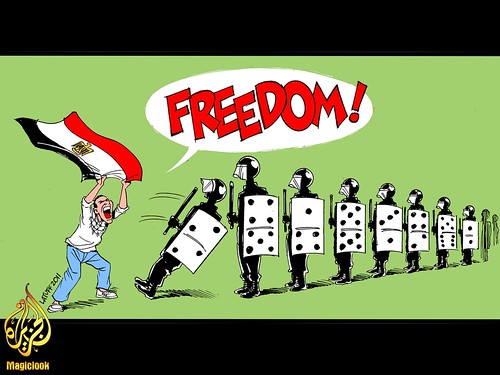
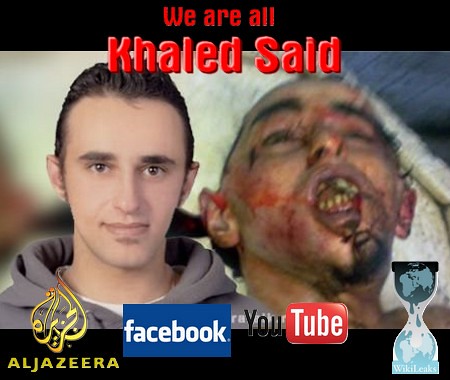
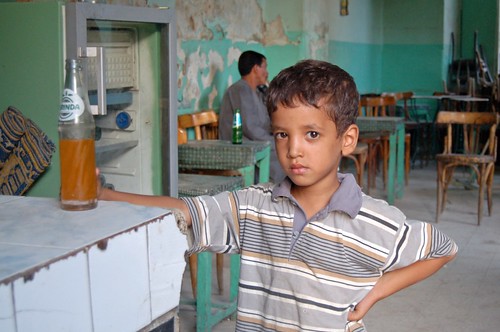



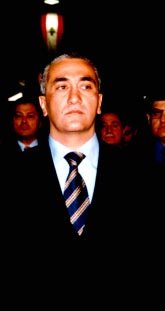
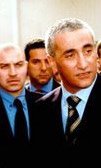




This is the latest assessment from Egypt:
Omar Suleiman stands now as the main hope for a way out. There are two problems however with the General. First he still moves within a circle defined by the old set of things. The guy has no experience with the complexities of the current situation (who does). But when you have a head that was forged in a specific way it is difficult to change over night. Suleiman can not yet get out of the details and take a general look and come out with his OWN initiative. The second problem may perhaps explain the first at least partially. This problem is that he does not have total control over the military forces which were deployed to the streets. The presidential guard which some of its units were deployed in the 28th are under the control of the president alone. Certain units of armored brigades are under the control of the palace. Just examine the structure of the forces deployed. Suleiman is not free handed. But I wonder if he could take an initiative that could end the crisis if he was.
We are in a very sensitive phase now. Suleiman should move. Ease the President out some how or keep him as an honorary figure. Order a rebuild of the police and security forces. Cancel the emergency laws. Reorganize the country's political theater and start implementing a plan to rebuild the economy of the Egypt. Suleiman is the solution. But is he up to it?. He has a small window of opportunity. Some one should tell him to take a look over the horizon and have a vision to save Egypt. If you ask me whether I think he is the caliber that can put together a bold initiative and see it throw my answer will lean towards skepticism...unfortunately...